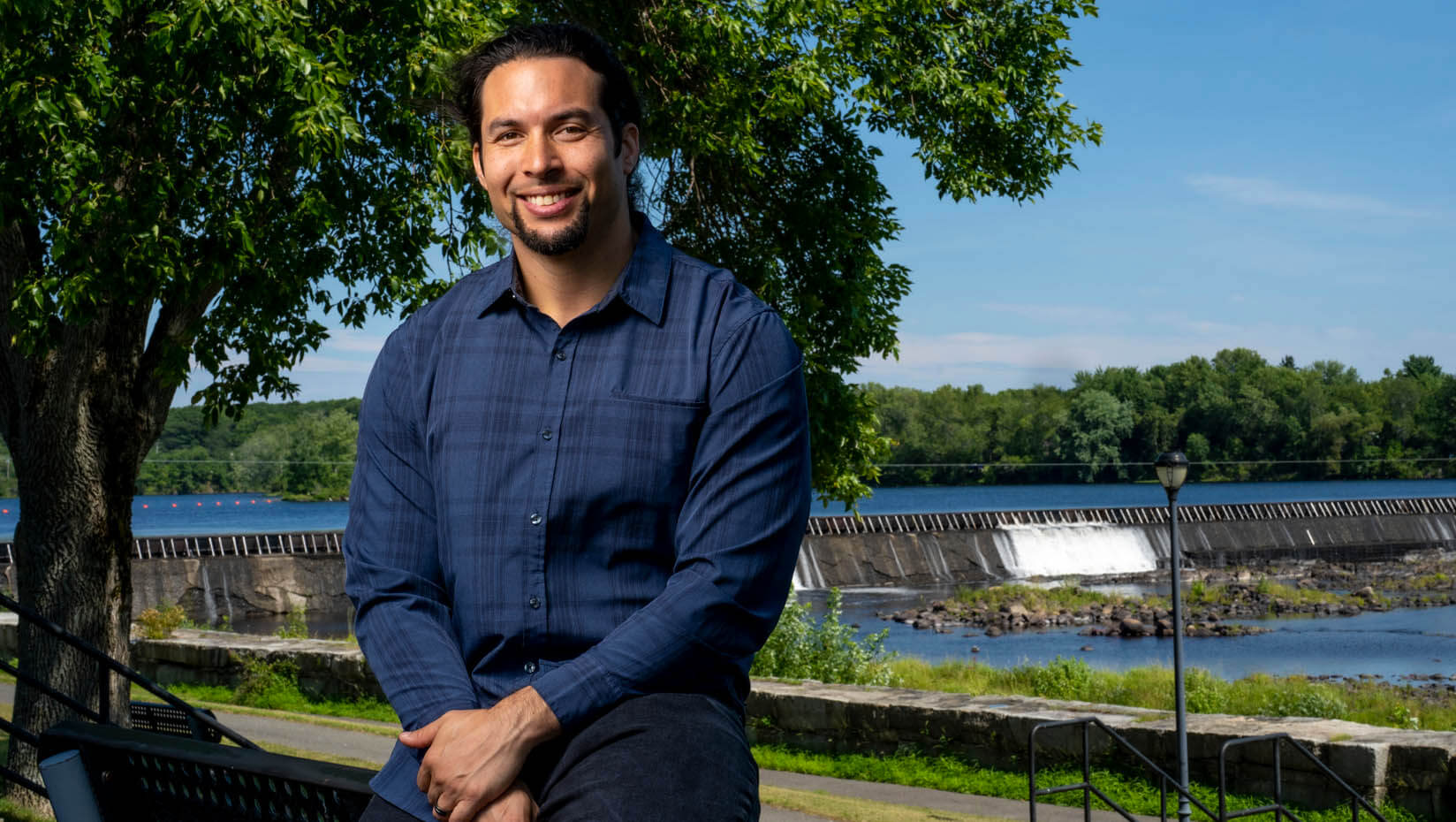
Native American Programs, UMaine Extension hire Sutton as assistant professor of Native American food systems
The University of Maine Native American Programs and UMaine Extension have hired Tony Sutton as assistant professor of Native American Food Systems. Sutton’s position will focus on Native American food systems and sovereignty, building on relationships established with the Tribes and grants and programs developed in Native American Programs.
Sutton moved to Maine from Oregon in 2008. His mother is a member of the Passamaquoddy Nation, so even though he grew up on the West Coast, moving to Maine felt like a homecoming. Plus, after studying history for his undergraduate degree, Sutton felt like he had a mission to represent Wabanaki stories and knowledge, which were so often excluded from historical narratives.
“My return to my homeland was part of that journey,” Sutton says. “The broader culture tends to pick and choose what stories they tell, and I wanted to tell our story.”
Sutton worked a variety of jobs around the state, from an environmental educator at the Maine Department of Environmental Protection to the lead instructor at a CrossFit gym. No matter where he went, though, he kept coming back to the importance of food, particularly to tribal communities and their history.
“When I went down a path of changing how I was eating and exercising, I just felt really empowered with the changes I was making, and I felt compelled to share that with other people too,” Sutton says. “People’s relationships to food are really complex and the way that I wanted to continue supporting that change was through the university. I felt like my calling in this place was coming into the picture to rebuild and retell the stories of the Wabanaki food systems.”
In 2010, Sutton began pursuing his graduate studies at UMaine, eventually earning his master’s degree in communication and doctorate in ecology and environmental sciences. During his graduate studies, he worked at Micmac Farms and Fish Hatchery in Caribou, which is run by the Mi’kmaq Nation.
There, Sutton says he found a true community — and learned a lot about food sovereignty in Maine and how Wabanaki people are excluded from the narrative along the way.
“Our food system is often in balance between land-based food, saltwater and freshwater,” Sutton says. “The broader culture tends to divide these into different agencies and it makes it hard for us to connect a foodway as we know it. We see that play out in access to fisheries. Even things like how pollution is regulated, how many fish people can eat — those rates tend to be established for an American diet and not necessarily a Wabanaki diet. A lot of regulations have been developed for industrial uses of waterways not sustenance uses of waterways. What’s happening is really complex, but when you see those pieces coming together, it makes sense.”
After completing his Ph.D., Sutton delved deeper into his work studying and rebuilding Native foodways in Maine. He worked as a community food facilitator at the Maine Shellfish Learning Network, where he is proud of creating a role “that was not dictating the course of the work but supporting the development of that coming from the community.”
When Sutton came across the listing for a joint position in Native American Programs and University of Maine Cooperative Extension, it seemed like the perfect opportunity to continue his life’s work with Wabanaki foodways.
“When I saw this position it to me felt like a natural fit,” Sutton says. “It was a lot of things that I was already doing but it gave me the concrete foundation and stability to continue doing it in the future. I think one of the things that’s unique is that they designed a really strong community-oriented position with a large percentage of my time to be devoted to that. That’s not always common in positions like this.”
Darren Ranco, chair of Native American Programs, says that filling the position has been “one of the top priorities for university collaboration by the Tribal Nations over the last several years.” When Sutton applied, the choice was clear.
“Tony Sutton is an amazing and important addition to Native American Programs, Cooperative Extension, and the University of Maine community,” Ranco says. “As a Passamaquoddy, he has deep ties to the Wabanaki Tribal Nations here in Maine, and has unparalleled, cooperative research and service experience on food sovereignty projects with the Tribes here in Maine. As a graduate student and lecturer over the last couple of years, he has distinguished himself as a gifted instructor.”
Hannah Carter, dean of UMaine Extension, agrees.
“Cooperative Extension has been working within the Maine food system for over 100 years and to have an opportunity for this joint position with Native American Programs to provide programming and increase our opportunities to collaborate with the Tribes is exciting and we look forward to the impacts Dr. Sutton will certainly have on the University and the state of Maine,” Carter says.
Sutton says he is excited to continue building relationships with people in Wabanaki communities through his position while also having the opportunity to teach and mentor students along the way.
“This position is really important and has a really important potential for a big impact. The best way to maximize that is through working with students so they can take on projects themselves and I can mentor students in the way I was mentored and teach them the way that they look at their role in the community as well,” Sutton says.
Sutton begins his position on Sept. 1, 2022.
Contact: Sam Schipani, samantha.schipani@maine.edu
